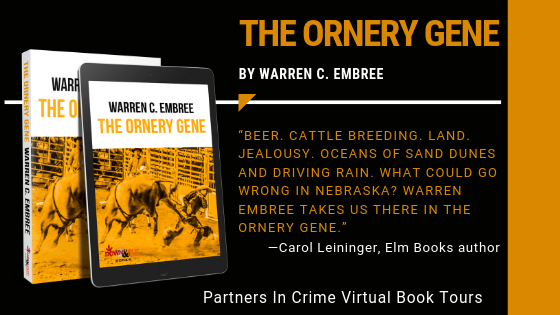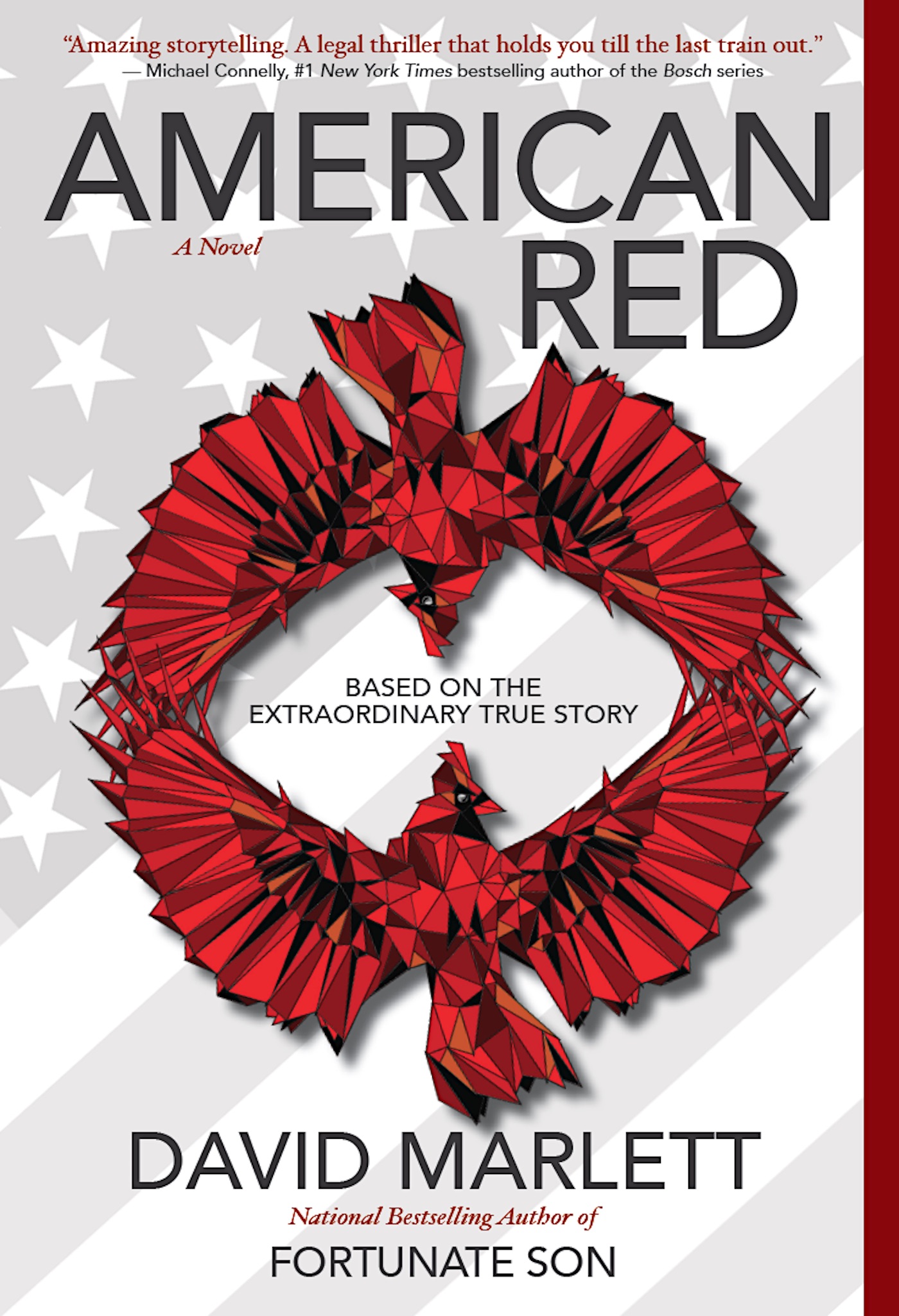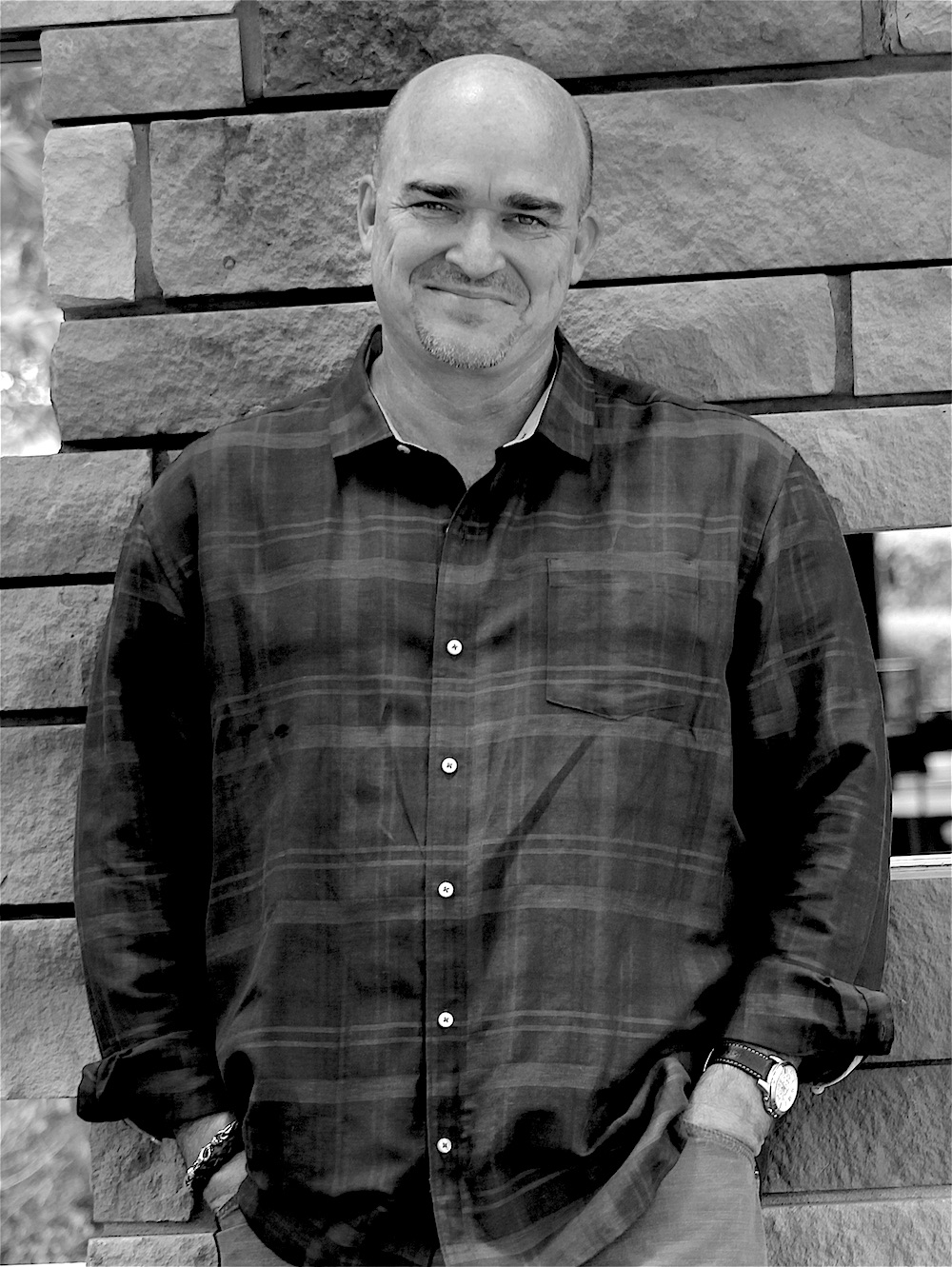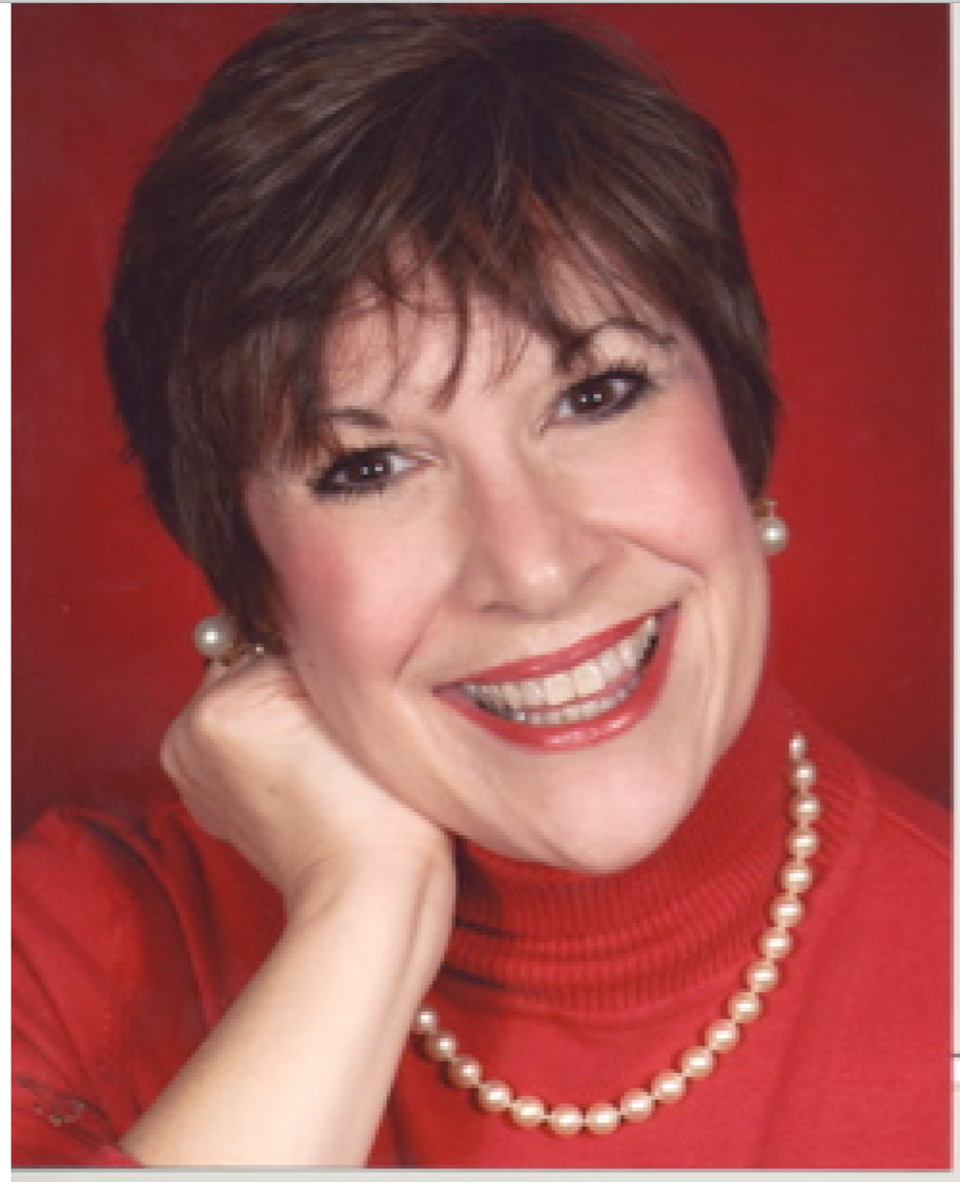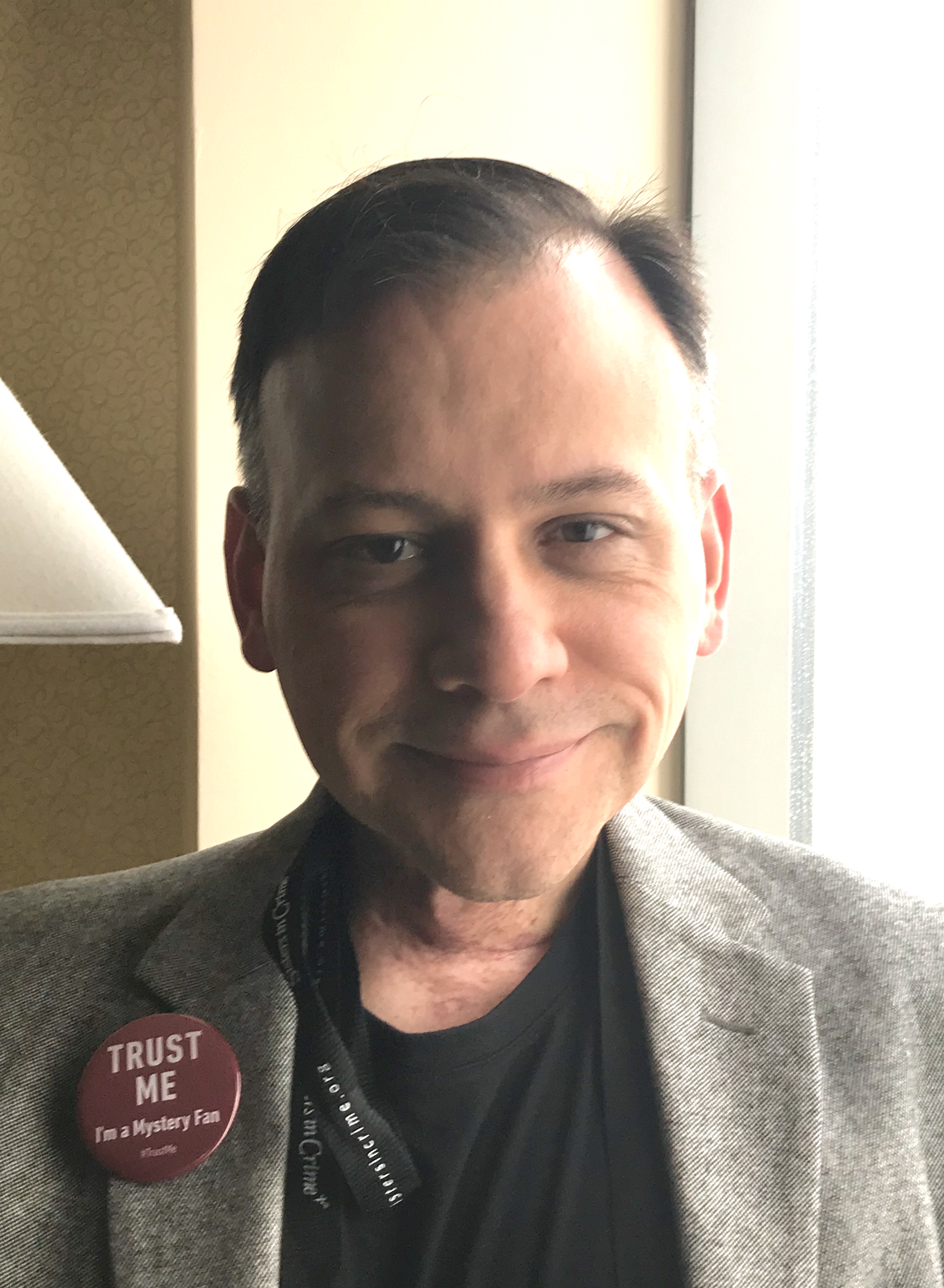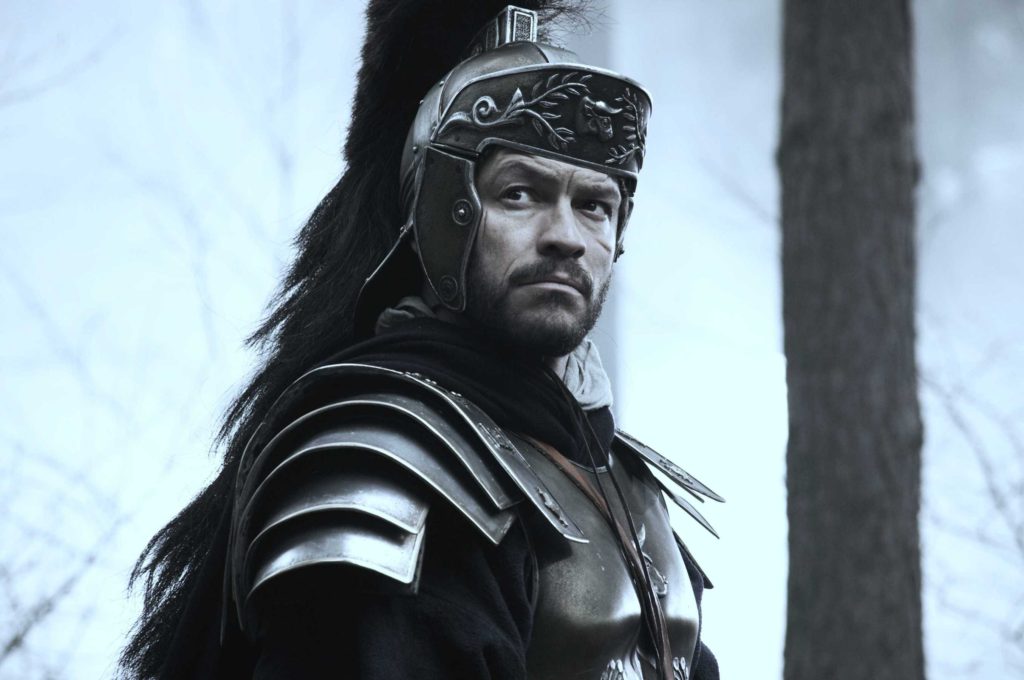The Ornery Gene
August 6th, 2019Synopsis:
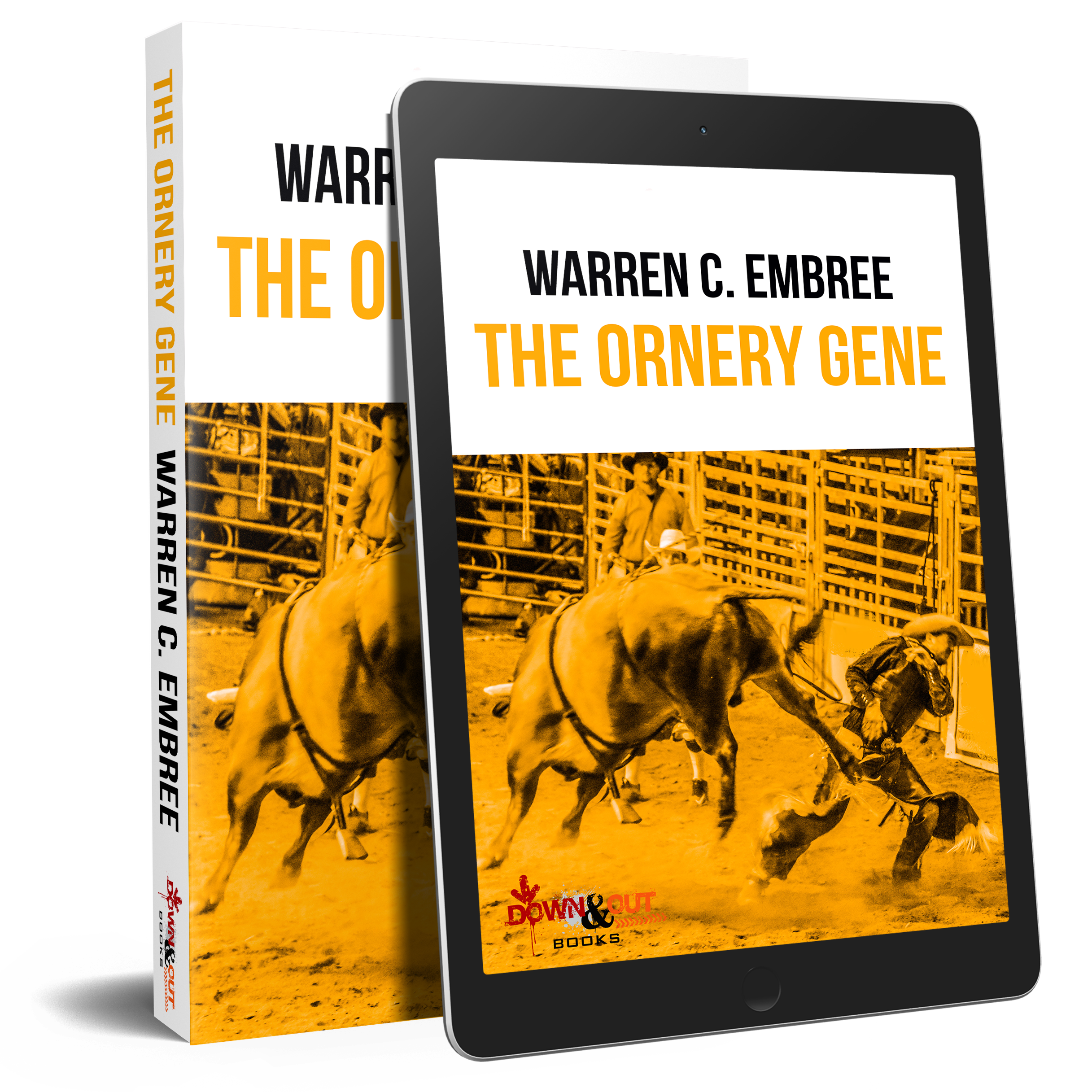
When itinerant ranch hand Buck Ellison took a job with Sarah Watkins at her ranch in the Sandhills of Nebraska, he thought he had found the place where he could park his pickup, leave the past behind, and never move again.
On a rainy July night, a dead body at the south end of Sarah’s ranch forces him to become a reluctant detective, digging into the business of cattle breeding for rodeos and digging up events from his past that are linked to the circumstances surrounding the murder of Sam Danielson.
Working with his boss Sarah, her nephew Travis Martin, and the cook Diane Gibbons, Buck unmasks the murderer, but at the cost of learning the reality of past events that he chooses to keep to himself.
Book Details:
Genre: Mystery, Amateur Sleuth
Published by: Down and Out Books
Publication Date: April 27, 2019
Number of Pages: 216
ISBN: 1643960121 (978-1643960128)
Purchase Links: Amazon | Barnes & Noble | Goodreads | Down & Out Books
ISLAND BREEZES
The ornery gene is what’s needed for a bull who will do well in the rodeo arena. Looking for that gene can get a person killed if he looks in the wrong place.
Trying to solve that mystery could get someone else murdered. The clues lead all over the place. Just when I thought I knew who had committed that murder, I had to change my mind. It went on like that through the book. I never once managed to guess the actual murderer.
During the investigation, secrets become known and our characters have to figure out how to deal with them.
It’s no secret that you’ll want to keep reading this book right through to the surprise ending.
***Book provided without charge by PICT.***
Read an excerpt:
CHAPTER ONE
Wednesday, 9:15 p.m.
Sam Danielson slowed his pickup to a stop beside an old cattle chute, switched off the engine, rolled the window all the way down, and listened. He absentmindedly counted the cricket chirps for ten seconds, added forty to the number of chirps and calculated it to be about sixty-five degrees or so outside. A trick his dad had taught him. It was a little chilly for July in this part of the hills, but he had heard the low rumbling of thunder on the drive out. It smelled like rain; there was a storm moving from the northeast that was cooling things down. There could even be some ice in it. He checked his watch: nine-fifteen. Just past twilight. He opened the pickup door and took a deep breath. He reached over, grabbed the flashlight from the glove box, and slid out of the driver’s seat onto the soft sand.
Off in the distance, he heard a mama cow lowing. This was the life he had chosen, and he had never looked back. It hadn’t been easy working for, and then with, his dad. They had gone back and forth on the best way to select the bulls and broncos they supplied for “rough stock” events at the rodeos in the Sandhills of western Nebraska. There was only one way for Dad. “You don’t have the feel for how much the bull don’t want rode,” his dad would say. But Sam had gone to school and studied twentieth-century methods of livestock rearing. For his dad it was a way of life; for Sam it was a business. Sam liked the numbers. He liked to narrow the odds by more than just a feeling. He had tried to show his dad the value in breeding techniques and genetic tracking in estimating the probability that a particular bull would do well in the arena. His dad would just laugh it off. “Show me the ornery gene,” his dad would laugh. “I’ll have five bulls picked before you decide on one.” But Sam knew his would be a better one than the five. He could prove the temperament of a bull before anyone tried to ride it. He had never convinced his dad. The ornery gene had been elusive, but not the genetic makeup of the ornery bulls. He had been right, and he had a genetically identifiable line of stock to prove it.
During his travels from his ranch outside of Laramie, Wyoming, Sam had been made aware of a genetic curiosity in one of the cattle he purchased in Colorado in the spring. Being off in the records would end up being off in the genetic makeup of the calves. There never was just one gene that made the difference. It was a matter of multiple generations. He had traced the lines that looked the most promising, and closely followed the leaders in the industry. Discovering that curiosity had led him into this part of the Sandhills of Nebraska. Talking about it at the bar had got him into an argument with the old cowboy, and listening to the old man had brought him to this particular spot.
“You’ll find what you’re looking for out there,” the old cowboy had said. “Then you’ll know I was telling you the truth.” Danielson switched the flashlight on and scanned the area around the cattle chute. He had let himself be convinced that the old man knew a thing or two about cattle breeding. What had surprised Danielson most was that the old man had known about the science behind modern breeding at all. The old cowboy looked more like he’d been “rode hard and put up wet” as his dad would have said: a man who had spent a hard life out in the sun and the rain and the snow. Danielson expected someone like that to know less about biogenetics and more about old school solutions. Like his dad.
The excitement the old cowboy had shown assured Danielson it would be worth his time to find out if he was headed in the right direction. But as he looked around the area, all he saw was a dump site for old batteries, tires, cook stoves, windmill parts, cans, bed springs, and used up corral panels. He saw nothing that would explain the old cowboy’s intensity. Now he was more curious to find out how the old cowboy would explain the genetic anomaly that he was so passionate about. It was one of those things his dad would say shouldn’t make a whole lot of difference in his deciding on a bull. It probably wasn’t all that important to breeders either. But he was curious, and keeping careful records was important to the integrity of breeding livestock. It was a necessary component in the breeding business and his business. He was hoping he could find some answers out here as he tried to piece together the puzzle. He was determined to take some time to track it down to the source and maybe be able to verify when and where the mistake was made.
He had tried to be low-key when he was asking questions, but the speed at which the old cowboy had raised his hackles this afternoon showed Danielson just how hard that was going to be. He had touched the wrong nerve on the first try. He wasn’t sure whether he had asked the wrong question or his question had been taken the wrong way. It took a couple of beers and a good bit of time getting the old man calmed down. When it finally got friendly again, the old cowboy had told him about the spot out here in the hills. He gave directions and said he’d meet him out there around nine that evening.
As he waited for the old cowboy to show up, Danielson kicked at a broken pitman, picked it up, and used it to move around some cans at the edge of the dump site. He wasn’t terribly interested in getting bitten by a rattlesnake or a rat. It was a half-hearted effort. He sniffed the air again and caught the scent of pine and cedar trees this time. The hills hadn’t changed much from when he was a kid except the cedar trees. They were becoming a weed out in the hills. He shoved a wooden box with the pitman, then threw the stick of wood back into the pile. It was altogether possible that the old cowboy had sent him out on a snipe hunt. It just as well be. There was nothing he’d seen so far that was tied to the cattle breeding. If it were here, it wasn’t something obvious. What galled him was that he could be looking right at it and still not see it. For that matter, there could be nothing to it.
A loud clap of thunder caused Danielson to look up at the sky. In the southwest the clouds were fast turning to an ugly black. He saw the lightning streak across the sky and started counting. He reached fifty-two and he heard the thunder again. The storm was only about ten miles away. He didn’t want to get caught in the storm, and he hadn’t found anything yet. It wouldn’t be the first time he had gone on a wild goose chase.
He walked over to the rear of the pickup, pulled out a can of chewing tobacco from his back pocket, and stuffed a pinch in the back of his cheek. He put the can back in his pocket and picked up an old spur that was in the pickup box. He turned it over in his hand as he walked over to the chute—just an old spur. The old cowboy had given it to him, along with some old rodeo flyers, claiming he’d known Danielson’s dad and had got it from him. His dad had never been a bull rider, so the spur didn’t belong to him. He didn’t know whether someone had given it to his dad or his dad had simply found it tearing down after one of the rodeos they had supplied the bulls and broncs for. It reminded him that he needed to go through his dad’s things, a clutter of boxes, something he’d put off for ten years after his dad died. He tossed the spur toward the pickup box but hit the fender instead, bouncing the spur at an odd angle forward of the pickup. He walked over toward the cattle chute and battery and pointed his flashlight in the direction the spur had bounced.
Danielson caught the flash of lightning in the corner of his eye, heard a pop from behind him, then felt a sledgehammer hit him in the middle of the back. The strength drained out of his legs. He felt a sharp pain spring out from where the hammer had hit that seemed to rush through his torso. His legs gave out and he hit the ground, knees first, and then fell on his face. The pain was now a hot, burning sensation from the place where the hammer had hit and his back felt wet. He thought he had been struck with lightning, cursing himself for miscalculating the distance of the storm. He tried to use his arms to push himself up, but he couldn’t gather the strength. He dropped back down. He could feel that his back was soaked, but it hadn’t started raining yet.
From off to his right, he heard something moving cans around. It wasn’t the wind. It was deliberate. No animal would do that either. A few moments later, he felt someone kick his side. He grunted involuntarily, and then tried to roll over. His legs were a dead weight. He twisted his face away from the pickup, but couldn’t see anything. “He shot me,” he whispered. He tried to raise himself with his arms, but was light-headed now. I can’t believe he shot me. A few moments later rain poured from the clouds, diluting the blood from his back and mingling it with the sand.
***
Excerpt from The Ornery Gene by Warren C. Embree. Copyright © 2019 by Warren C. Embree. Reproduced with permission from Warren C. Embree. All rights reserved.
Author Bio:

WARREN EMBREE and his wife grew up in the Sandhills of Nebraska. He did both farm work and ranch work during those years, and he still keeps track of what goes on in the hills. After leaving the area, he pursued an academic career in English, Classical Languages, and Divinity. He lectured at a couple of institutions and preached at a few churches, and he now works in Lincoln as a data analyst for the University of Nebraska. His knowledge and love of the unique culture of the Sandhills, his education in languages and literature, and his analytical skills contribute to his story telling. He and his wife currently live in Nebraska and have 3 grown children.
Catch Up With Warren Embree On:
warrenembree.com, Goodreads, & Facebook!
Tour Participants:
Visit these other great hosts on this tour for more great reviews, interviews, guest posts, and giveaways!
Enter To Win!:
This is a rafflecopter giveaway hosted by Partners in Crime Virtual Book Tours for Warren C. Embree. There will be 2 winners of one (1) Amazon.com Gift Card each. The giveaway begins on August 1, 2019 and runs through September 2, 2019. Void where prohibited.

